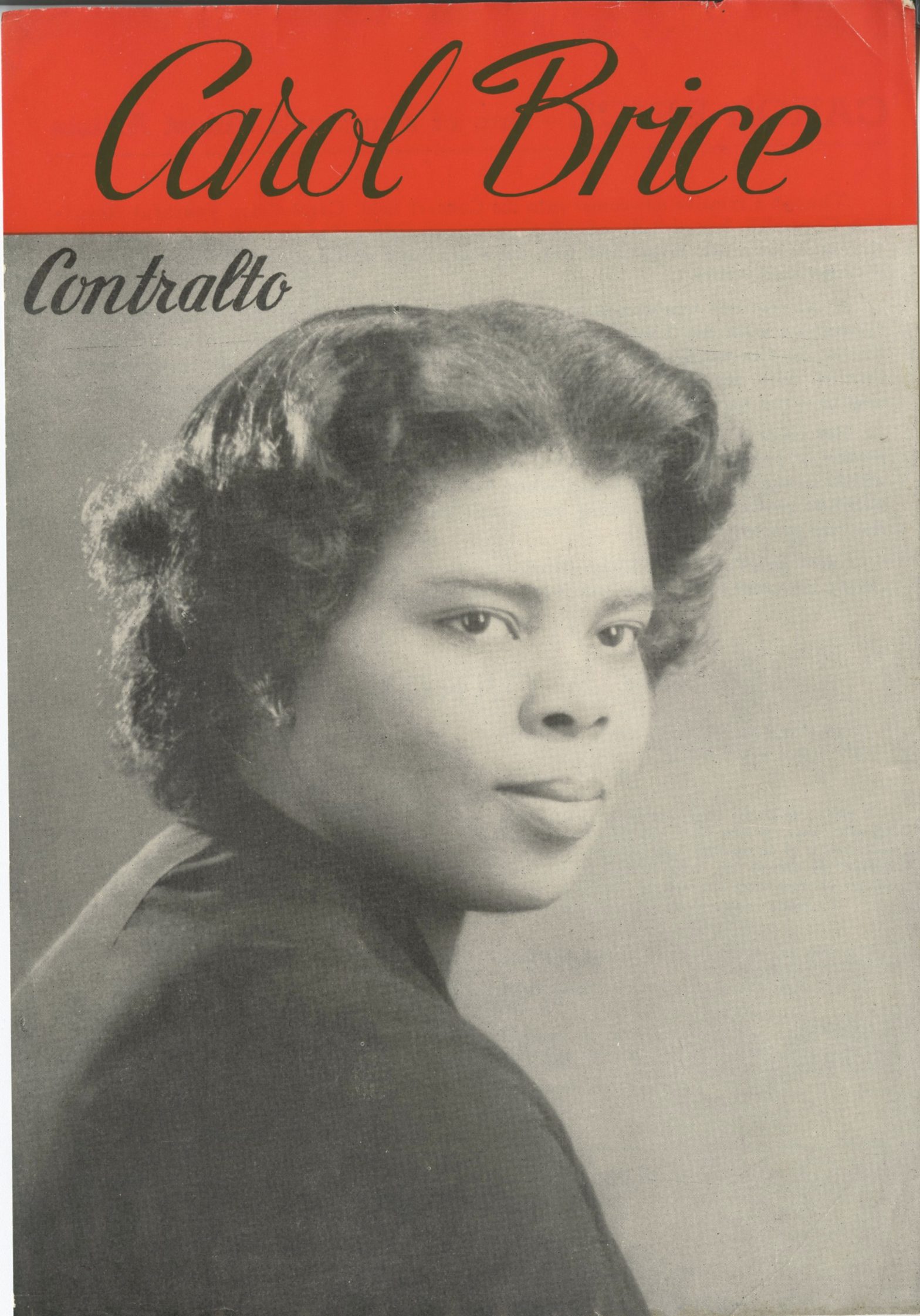Contralto singer Carol Brice (1918-1985) came to Black Mountain College as a guest teacher in 1945, a year after Alma Stone Williams had been invited as a student, paving the way for integration at the college. Other guests had been artist Willem de Kooning, composer John Cage and dancer Merce Cunningham.
Brice arrived with her baby and mother, who stayed with her throughout the summer, reflecting perhaps a broadening openness to integration at the college. Brice would return to Black Mountain again in the summer of 1947 for four weeks of recitals, this time with her husband and their small son. The sculptor Angelica Bodky Lee, a student that summer, recalled that Brice “made a great impression on Black Mountain community members with her exceptionally moving concerts.”
Born into a musical family in Indianapolis, by the age of three, Brice’s singing talent was evident, and as an early student at Palmer she toured the country with the Sedalia Singers. At the age of thirteen, Brice won an award for the best contralto voice at a North Carolina music festival. She first attracted attention when she sang The Hot Mikado alongside Bill “Bojngles” Robinson at New York World’s Fair in 1939. She met her husband Cornelius Wiley “Neil” Scott, a baritone in the chorus. Trained at the Palmer Memorial Institute, at Talladega College and at Julliard in New York, she was one of the first African American classical singers to record extensively.
In 1941, she was chosen to sing at a concert for President Roosevelt’s 3rd inauguration, and was first Black American to win the Naumburg Award in 1943. She played many parts throughout her life, among them Addie in Regina, Maude in Finian’s Rainbow, Maria in Porgy and Bess (for which she won a Grammy award in 1978), Queenie in Showboat and Harriet Tubman in Gentlemen, Be Seated!. In the 60 and 70s, she was a member of the Vienna Volksoper and taught at the University of Oklahoma. She founded the Cimarron Circuit Opera Company with her second husband the baritone Thomas Carey, and in 1977 they were both named Oklahoma Musicians of the Year.
Follow our #WomenOfBMC series to discover some of Black Mountain’s pioneering women.
Banner image: Carol Brice playbill, date unknown. Courtesy Western Regional Archives, State Archives of North Carolina.
